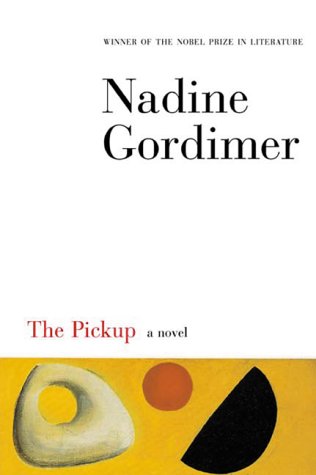
Preview The Pickup
When Julie Summers's car breaks down on a sleazy street in a South African city, a young Arab mechanic named Abdu comes to her aid. Their attraction to one another is fueled by different motives. Julie is in rebellion against her wealthy background and her father; Abdu, an illegal immigrant, is desperate to avoid deportation to his impoverished country. In the course of their relationship, there are unpredictable consequences, and overwhelming emotions will overturn each one's notion of the other. Set in the new South Africa and in an Arab village in the desert, The Pickup is "a masterpiece of creative empathy . . . a gripping tale of contemporary anguish and unexpected desire, and it also opens the Arab world to unusually nuanced perception" (Edward W. Said).
While Nobel Prize-winner Gordimer's trenchant fiction has always achieved universal relevance in capturing apartheid and its lingering effects in South Africa, this new work attains still broader impact as she explores the condition of the world's desperate dispossessed. To Julie Summer, rebellious daughter of a rich white investment banker, the black mechanic she meets at a garage is initially merely an interesting person to add to her circle of bohemian friends. But as their relationship swiftly escalates, Julie comes to understand her lover's perilous tightrope attempts to find a country that will shelter him. Abdu, as he calls himself (it's not his real name), is an illegal immigrant from an abysmally poor Arab country. Now on the verge of deportation from South Africa, he's forced to return to his ancestral village. Julie insists on marrying him and going with him, despite his fears that she does not understand how primitive conditions are in the desert town where his strict Muslim family lives. Abdu (now Ibrahim) is astonished when she willingly does manual labor to earn his family's respect. They clash, however, over his decision to try once again to gain entry into a country that discriminates against immigrants from his part of the world. Gradually realizing that she has finally found a center to her heretofore aimless life, Julie matures; in many ways, she has become more cognizant of reality than her frantically hopeful husband. Gordimer handles these psychological nuances with understated finesse. With characteristic bravado, she reprises a character from her previous book, The House Gun, to show how some blacks are now faring in a reorganized South African society. The brilliant black defense lawyer in that book has taken advantage of opportunities to join a banking conglomerate; he is now involved in "the intimate language of money." It's the people still trapped by economic chaos and racism who now interest this inveterate and eloquent champion of the world's outcasts.
Copyright 2001 Cahners Business Information, Inc.
From Library JournalAn incinerating affair between a wealthy young woman and an Arab mechanic.
Copyright 2001 Reed Business Information, Inc.
